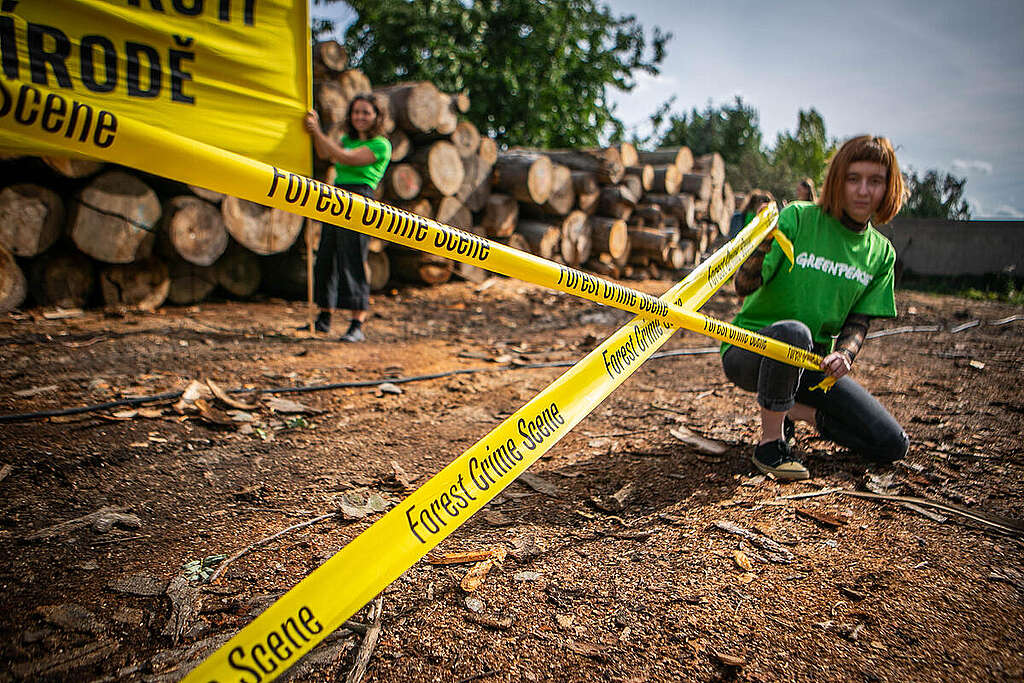An investigation by Greenpeace Czechia has linked logging – some of it illegal – in the old-growth forests of the Ore Mountains and the Ždánice Forest in Czechia to public and private companies selling timber and timber products to other EU countries. Czechia is one of the EU’s biggest timber exporters, it exports around half of its timber. GPS trackers were placed in timber piles near Mariánské Údolí, where unauthorized logging occurred, and near Snovídky, where timber harvested from areas of high biodiversity is destined for a paper mill owned by the multinational Mondi Group. The findings highlight the EU’s failure to protect its remaining old-growth forests – and unsuspecting consumers – from the profit interests of the timber industry.

Greenpeace Czechia forest campaigner Nikol Krejcova said:
“The investigation shows that the timber industries’ hunger for wood does not stop at old-growth forests, including those in protected areas. Ambiguous legal frameworks, illegal logging and poor mapping are allowing the destruction of these forests, which deserve the highest level of protection. The unique ecological richness of the deciduous forests in the Ore Mountains and the Ždánice Forest, home to many endangered and protected species, could make them a vital contribution to the EU’s defense against climate and biodiversity collapse. Instead, the EU stands by as these forests are destroyed for short-lived products. EU leaders must finally begin to put nature before profit and translate the EU’s biodiversity commitments into the effective protection of pristine ecosystems.”
Europe’s most pristine forests protected only on paper
The EU’s most biodiverse forests – old-growth forests – make up only 3% of the EU’s total forest area. 87% of mapped old-growth forests are under strict protection from human interference. In contrast, Greenpeace investigations reveal forest destruction persists even in small pockets of the remaining old-growth forests, and there is no control over where the harvested timber ends up in the EU.
The beech forests of the Ore Mountains are part of Natura 2000, an EU system of protected habitats for rare and endangered species, but the EU has not prompted Czechia to implement any special measures. The Czech authorities only require that a permit be obtained prior to logging. Logging without a permit and selling the timber are both illegal, the latter under European law. Yet both occur.
The European Commission’s call to protect the Ždánice Forest for its unique biodiversity was met with resistance from politicians, the state forestry company, and the Ministry of Industry. Faced with possible EU sanctions, the Czech government designated only a negligible portion of the forest for protection. Timber harvested in other areas of the Ždánice Forest is certified by the Program for the Endorsement of Forest Certification (PEFC), proving once again the ineffectiveness of certification schemes.
Full report here.
